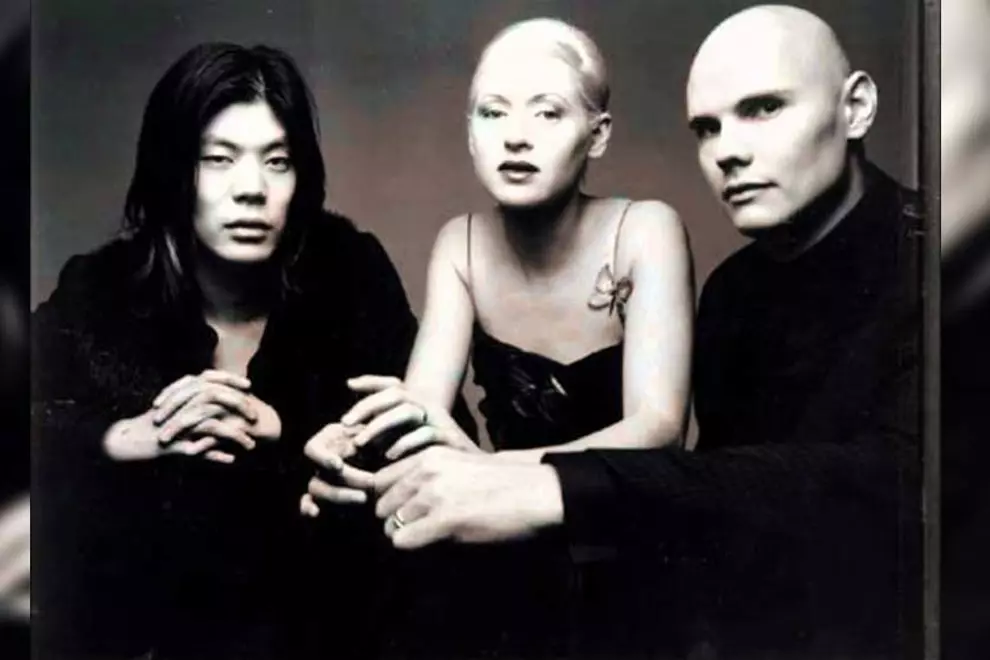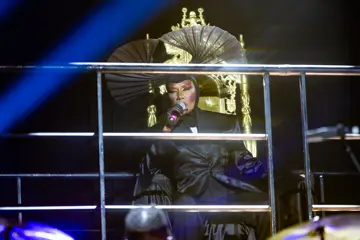Where can an artist go once they've already turned everything up to 11? Roger Waters tried in vain to match the epic scale of The Wall on The Final Cut; the former work inflating his ego so much that he overestimated the audience's tolerance for daddy issues. For Yeezus, Kanye ditched the absolute decadence of My Beautiful Dark Twisted Fantasy for a brand of minimalism that even snubbed its nose at the notion of cover art. Liz Phair gave the world her refreshingly mundane life story from beginning to end on Exile In Guyville, but soon found herself on a much bigger stage and armed with nothing but industry tales that few could relate to.
So after delivering what Billy Corgan once described as "The Wall for Generation X" with 1995's Mellon Collie And The Infinite Sadness, selling it by the millions and forever securing his place in the hearts of an entire decade of lovesick teenagers, what's a boy supposed to do? With the ferocious jazz-fuelled drumming of Jimmy Chamberlin suddenly absent from the band following the release of Mellon Collie..., Corgan realised that his time as the great guitar wizard of alt-rock was suddenly up. Stephen Malkmus probably could have taken the throne if he wasn't so distracted by his developing ear for pop melodies.
Released on 2 June 1998, Adore is essentially an album of Gothic synth pop, it's black and white musical landscape harking back to an era where even Corgan was doing his best to pull off the Robert Smith hairdo. While initially slapped with a rocky reception in the post-grunge climate of the late '90s, Adore is an album that's aged with considerable grace. While its slow-burn of a cult following isn't as gripping as the tale of Weezer's Pinkerton, time has certainly been kind to this gloomy little record, especially considering the shelf life of certain analogue synths.
Whenever a traditional rock group decides to test the waters of electronic music, there's bound to be some regrets or knee-jerk reactions. In response to the album's lukewarm reception, Corgan lamented the fact that he had advertised Adore as a "techno record" rather than an acoustic one. In fact, it's the abundance of acoustic and orchestral sounds that keeps Adore so deeply listenable today. To Sheila opens up the album with Corgan picking over some simple chords with his guitar tuned down half a step. For Martha, an eight-minute elegy mourning the loss of Corgan's mother, is a predominantly piano-based track featuring some intense moments of sampling and jagged guitars. Then there's the keyboard-heavy songs like Appels + Oranjes or Pug, which sound like they were written for the club scene in The Matrix.
Don't miss a beat with our FREE daily newsletter
While Mellon Collie And The Infinite Sadness's carpet bomb of a marketing campaign brought us a grand total of five music videos, Adore only carried two with its release. Ava Adore sees Corgan embracing his chrome dome to rock a very Nosferatu-inspired get-up, traipsing around a background of several Gothic locales to either spook or arouse us. It's a video that Goth girls of the '90s still cite as the sexual genesis for their taste in guyliner.
But perhaps dearest to the hearts of most Pumpkin-heads is the clip for Perfect, a de-facto sequel to the video for Corgan's greatest pop achievement: 1979. Featuring the once-teenage cast of 1979 as an older group of troubled young adults, Perfect eerily mirrors the real-life growth of any kid who saw the former video on MTV and related to its montage of an authentic, chaotic adolescence. It's almost as if Corgan is reaching out of the TV to say, "I was watching you then and I'm still watching you now."
With a discography that includes the sprawling epic that is Mellon Collie... and the sonic perfection of Siamese Dream, it's understandable that Adore is rarely mentioned as any fan's favourite Smashing Pumpkins album. At many points it's a little too melodramatic for its own good; with Corgan's lyrics often serving sophomoric quotes to his critics on a silver platter and riddled with a few songs that outstay their welcome. But it's the endearing flaws like these that only add to the record's Goth-phase charm rather than dragging it down. Outside of its two hit singles, the (mostly) reformed Smashing Pumpkins are unlikely to feature many tracks from the Adore era on their upcoming North American tour. But for 72 monochrome minutes, Adore is an album that'll transport any curious listener to a vampiric world of acoustic lullabies and black-leather boots. And that's a hell of a lot more than most bands can say about their electronica phase.
















